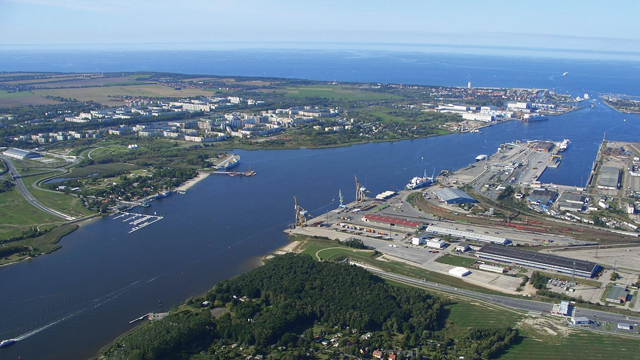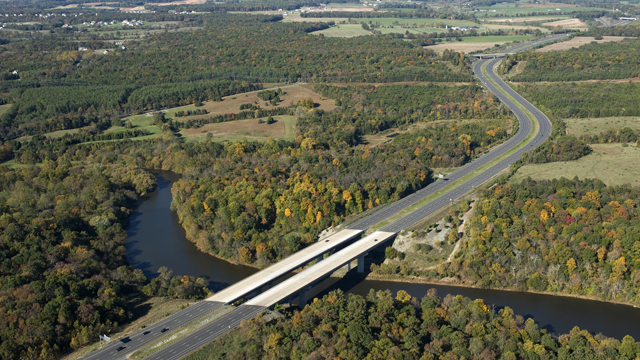CHICAGO SKYWAY
The Chicago Skyway is a 12.5 kilometre elevated toll road providing congestion relief in an essential transportation corridor between Chicago, Illinois and Northwest Indiana.
About CHICAGO SKYWAY
| Location | Chicago, United States |
| Road privatised | 2005 |
| Length | 12.5 kilometres |
| Number of lanes | Three lanes in each direction |
| Tolling structure | Tolls increased annually on 1 January at greater of nominal US GDP per capita growth, US CPI growth, or 2.0% floor, rounded up to the nearest US$0.10 Macroeconomic variables flow through toll increase formula with a 2-year lag |
| Toll collection | Electronic, credit card, cash |
| Concession expiry | January 2104 |
| Related links |
The Chicago Skyway (Skyway) is a 12.5 kilometre toll road in Chicago, connecting Chicago and Northwest Indiana.
The Skyway initially opened to traffic in 1958 and is now operated under a 99 year concession lease, following privatisation by the City of Chicago in 2005.
The Skyway serves the third-largest metropolitan area in the US and is situated in one of the densest urban areas in the country. The region is also a key logistics infrastructure hub in the Midwest, resulting in a diverse traffic base.
Concessionaire ownership structure
Calumet Concession Partners Inc., (CCPI) holds a 100% indirect equity interest in Skyway Concession Company LLC, the concessionaire of the Chicago Skyway.
Atlas Arteria Limited’s (ATLAX) wholly owned subsidiary, Atlas Arteria Holdings Australia Pty Ltd, holds a 66.67% equity interest in CCPI.
Atlas Arteria International Limited’s (ATLIX) wholly owned subsidiary, Green Bermudian Holdings Ltd, holds 66.67% (US$166.7m) of the total shareholder loans notes on issue from CCPI.
The remaining 33.33% equity interest and shareholder loan notes in CCPI are held by Ontario Teachers’ Pension Plan (OTPP).

Ownership History
The Skyway initially opened to traffic in 1958. In 2005 it was privatised by the City of Chicago under a 99-year concession lease, with the Skyway Concession Company LLC (SCC) incorporated as the concessionaire. The Skyway was then owned by a consortium comprising Cintra, Macquarie Atlas Roads (now Atlas Arteria) and Macquarie Infrastructure Partners.
In 2016, the Skyway was sold to a consortium of Ontario Municipal Employees Retirement System Administration Corporation, Canada Pension Plan Investment Board and OTPP, with each party having an equal 33.33% interest in the business.
On 14 September 2022, Atlas Arteria announced it had entered into an agreement to acquire a 66.67% interest in SCC with OTPP retaining the remaining 33.33%.
Atlas Arteria’ acquisition of the 66.67% interest completed on 1 December 2022 after obtaining all the necessary regulatory approvals.
Road Configuration
The Skyway has three lanes in each direction and one toll plaza.
The Skyway consists of the following key elements:
- 8.4 kilometres of roadway pavement supported on embankment;
- 4.2 kilometres of elevated bridge structures, consisting of the Calumet River Bridge, viaducts and overpasses;
- 7.4 kilometres of ramps providing access to the Skyway, 1.3 kilometres of which are on elevated structures and the remaining 6.1 kilometres on pavement supported by embankments; and
- tolling plaza service building – a four story service building and toll canopy structures housing the central office and maintenance garage.
At the southern-end of the Skyway, there is a direct connection with the Indiana Toll Road (I-90), at the Illinois / Indiana border. At the northern-end the road connects with the I-90 and the I-94 (Dan Ryan Expressway), leading to downtown Chicago. In addition, there are seven ramp pairs connecting the Skyway with surrounding road links in southern Chicago.
Tolling Structure
The Skyway uses a closed barrier tolling system, with all tolls charged at the mainline tolling plaza. There are six tolled vehicle classes based on the number of vehicle axles.
Class 2 vehicles (i.e. two axles) are light vehicles (e.g. standard cars and motorbikes). Class 3 to Class 7 vehicles are heavy vehicles with three to seven axles (including trailers). Peak period tolling applies to heavy vehicles only, between 4am and 8pm on weekdays.
Tolls are increased annually on 1 January each year at the greater of nominal US GDP per capita growth, US CPI growth, or 2.0% floor, rounded up to the nearest US$0.10. Macroeconomic variables flow through the toll increase formula with a 2-year lag.
Toll rate increases require 90 days notice to be provided to the City of Chicago prior to the planned increase. There is no required governmental approval to implement toll rate increases (subject to above limits).




